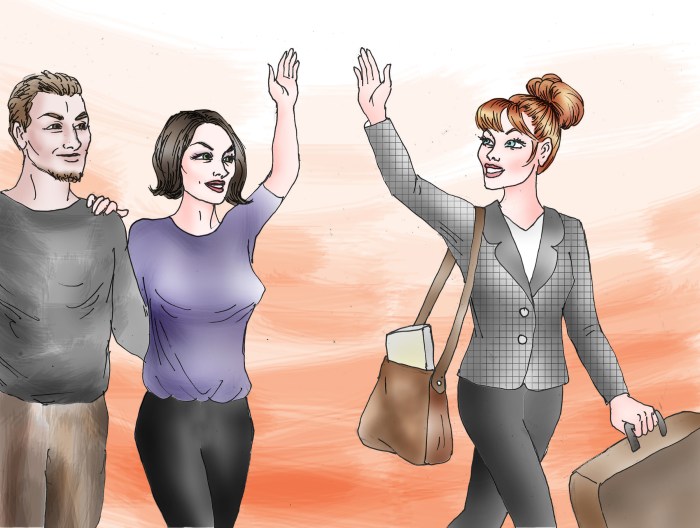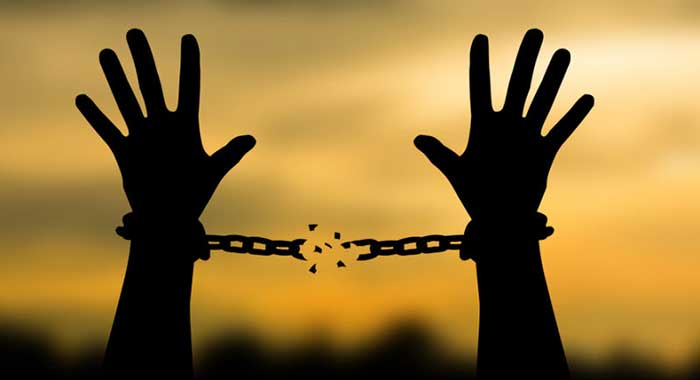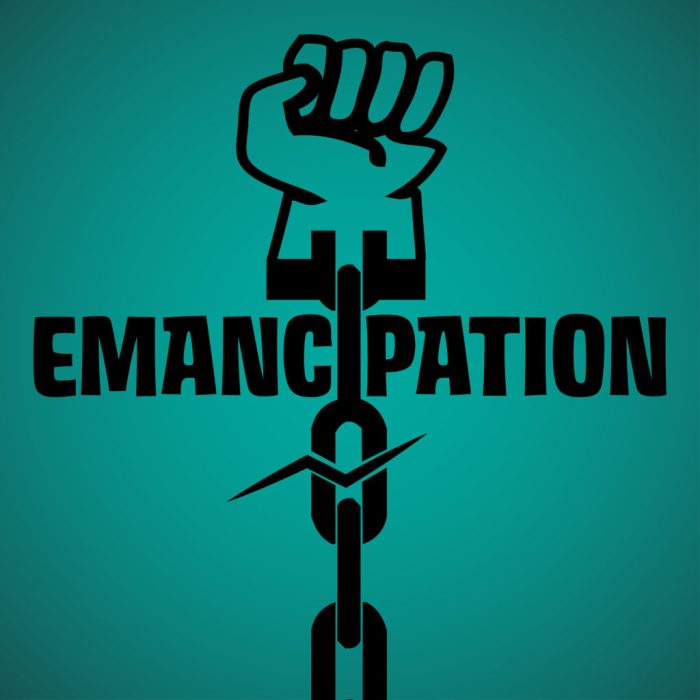Free from slavery crossword clue – Commencing with the enigmatic crossword clue “free from slavery,” this discourse embarks on an exploration of the multifaceted history, legal implications, and contemporary manifestations of this abhorrent practice. Throughout the narrative, we will delve into the complexities of slavery, examining its psychological, social, and economic impacts, while also shedding light on the crucial role of education and technology in combating this scourge.
From the annals of ancient civilizations to the present day, slavery has cast a dark shadow over human history, assuming various forms and leaving an enduring legacy of suffering and inequality. We will trace the evolution of legal frameworks and ethical principles that have shaped the fight against slavery, while also examining the persistent challenges posed by modern forms of exploitation.
Historical Context of Slavery: Free From Slavery Crossword Clue
Slavery, a system of forced labor and servitude, has existed in various forms throughout human history. Its origins can be traced back to ancient civilizations, where it was often associated with warfare, debt, and punishment.
Over time, slavery took on different forms, including chattel slavery, where individuals were considered the property of their owners, and indentured servitude, where individuals were bound to work for a specific period to repay a debt.
Notable Slave Revolts
Throughout history, there have been numerous slave revolts, driven by the desire for freedom and the end of oppression. Notable examples include:
- The Haitian Revolution (1791-1804): Led by Toussaint Louverture, this revolt resulted in the establishment of the first independent Black republic in the Americas.
- The Nat Turner Rebellion (1831): Led by Nat Turner, this revolt in Virginia resulted in the deaths of dozens of white settlers and sparked widespread fear and suppression of slave uprisings.
- The Amistad Rebellion (1839): Led by Cinque, this revolt involved a group of enslaved Africans who seized control of the ship carrying them to slavery in the United States.
Abolitionist Movements
Alongside slave revolts, abolitionist movements played a crucial role in challenging the institution of slavery. These movements emerged in the 18th and 19th centuries, advocating for the immediate and unconditional end of slavery.
- The British Abolitionist Movement: Led by William Wilberforce and others, this movement successfully campaigned for the abolition of the transatlantic slave trade in 1807 and the end of slavery in British colonies in 1833.
- The American Abolitionist Movement: Led by figures such as Frederick Douglass, William Lloyd Garrison, and Harriet Beecher Stowe, this movement played a significant role in the abolition of slavery in the United States following the Civil War.
Legal and Ethical Aspects of Slavery
Slavery has been a persistent scourge throughout human history, with legal frameworks and ethical principles playing a significant role in shaping its prevalence and eventual abolition.
Legal Frameworks
Legal frameworks have been used both to justify and abolish slavery. In ancient times, slavery was often sanctioned by law, with individuals being enslaved through conquest, debt, or birth into servitude. The Roman Empire, for instance, had a complex legal system that codified slavery and established the rights and obligations of slaves and their owners.
Over time, however, legal frameworks began to evolve, reflecting changing societal attitudes towards slavery. In the 18th century, the Enlightenment and abolitionist movements gained momentum, leading to the abolition of slavery in many countries. The British Parliament passed the Abolition Act in 1807, while the United States Constitution abolished slavery in 1865.
Ethical Principles
Ethical principles have played a crucial role in the fight against slavery. The idea that all human beings are inherently equal and deserving of freedom and dignity has been a powerful force in shaping public opinion and motivating abolitionist efforts.
The Universal Declaration of Human Rights, adopted by the United Nations in 1948, declares that “everyone has the right to life, liberty and security of person” and prohibits slavery in all its forms.
International Conventions and National Laws, Free from slavery crossword clue
Numerous international conventions and national laws have been enacted to prohibit slavery. The International Labour Organization’s Forced Labour Convention (1930) and the United Nations Supplementary Convention on the Abolition of Slavery, the Slave Trade, and Institutions and Practices Similar to Slavery (1956) are among the most important international instruments.
In addition, many countries have incorporated anti-slavery provisions into their national constitutions and laws. These laws criminalize slavery, provide for the protection and rehabilitation of victims, and establish mechanisms for enforcement.
Contemporary Forms of Slavery

Modern slavery encompasses various forms of exploitation that deprive individuals of their freedom and dignity. These include human trafficking, forced labor, and debt bondage.
Human Trafficking
Human trafficking involves the recruitment, transportation, transfer, harboring, or receipt of persons through force, fraud, or deception for exploitation. Victims are often subjected to sexual exploitation, forced labor, or organ removal.
Forced Labor
Forced labor occurs when individuals are compelled to work against their will through coercion, threats, or physical violence. This can take various forms, including bonded labor, child labor, and forced marriage.
Debt Bondage
Debt bondage is a system in which individuals are forced to work to repay a debt that they cannot reasonably repay. This can lead to a cycle of poverty and exploitation, as debts are often inherited or fraudulently inflated.
Causes and Consequences
Contemporary forms of slavery are driven by a complex interplay of factors, including poverty, inequality, conflict, and globalization. They have severe consequences for victims, including physical and psychological harm, social isolation, and economic deprivation.
Organizations and Initiatives
Numerous organizations and initiatives are working to combat modern slavery. These include:
- International Labour Organization (ILO)
- United Nations Office on Drugs and Crime (UNODC)
- Walk Free Foundation
- Anti-Slavery International
Role of Technology in Combating Slavery

Technology has emerged as a powerful tool in the fight against slavery, providing innovative methods to detect, prevent, and combat this heinous crime. Satellite imagery, data analytics, and social media platforms have become valuable assets in identifying and disrupting slavery operations.
Satellite Imagery
Satellite imagery offers a comprehensive view of remote areas and can detect suspicious activities associated with slavery, such as forced labor camps or human trafficking routes. Advanced image analysis techniques allow organizations to monitor changes in land use, infrastructure, and population patterns, identifying potential indicators of slavery.
Data Analytics
Data analytics plays a crucial role in identifying and tracking slavery networks. By analyzing large datasets from various sources, such as financial transactions, mobile phone records, and social media interactions, organizations can uncover patterns and connections that reveal the movement and activities of traffickers and slaveholders.
Social Media
Social media platforms have become powerful channels for raising awareness about slavery and connecting victims with support services. Victims and witnesses can use social media to share their experiences, report suspicious activities, and seek help from organizations dedicated to combating slavery.
Successful Initiatives
- Google Earth Engine:This platform provides access to high-resolution satellite imagery, enabling organizations to monitor deforestation, land use changes, and other indicators of slavery in remote areas.
- Trafficking in Persons Report:The U.S. Department of State’s annual report utilizes data analytics to track global trends in human trafficking and slavery, providing valuable insights for policymakers and law enforcement agencies.
- #NotForSale Campaign:This social media campaign uses influencers and celebrities to raise awareness about slavery and encourage people to report suspicious activities, leading to the identification and rescue of victims.
Education and Awareness

Education plays a crucial role in raising awareness about slavery and its consequences. Schools, universities, and community organizations can educate people about the history of slavery, its contemporary forms, and the impact it has on individuals and societies.
Effective educational campaigns have raised awareness about slavery and its impact. For example, the “End Modern Slavery” campaign by the International Labour Organization (ILO) has reached millions of people worldwide, educating them about the different forms of slavery and how to report it.
Role of Schools and Universities
Schools and universities can incorporate lessons about slavery into their curricula. This can include teaching about the history of slavery, the different forms of slavery that exist today, and the impact slavery has on individuals and societies. Schools can also organize workshops, invite guest speakers, and screen documentaries to raise awareness about slavery.
Role of Community Organizations
Community organizations can play a vital role in educating people about slavery. They can organize public forums, workshops, and awareness campaigns to raise awareness about slavery and its impact. Community organizations can also provide support to victims of slavery and advocate for policies to combat slavery.
FAQ Summary
What are the different forms of slavery that have existed throughout history?
Slavery has manifested in various forms, including chattel slavery, debt bondage, serfdom, and forced labor.
What are the key ethical principles that have been invoked in the fight against slavery?
The fight against slavery has been guided by principles such as human dignity, freedom, equality, and justice.
What are some examples of organizations and initiatives working to combat modern slavery?
Organizations such as the International Labour Organization (ILO), Anti-Slavery International, and Walk Free Foundation are actively engaged in combating modern slavery.